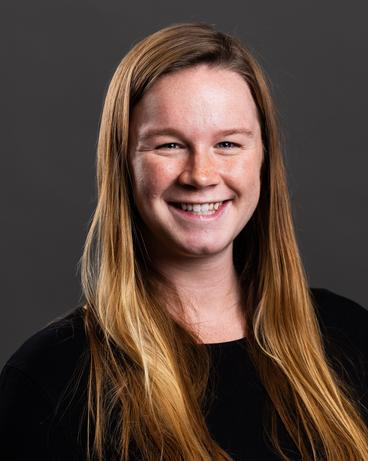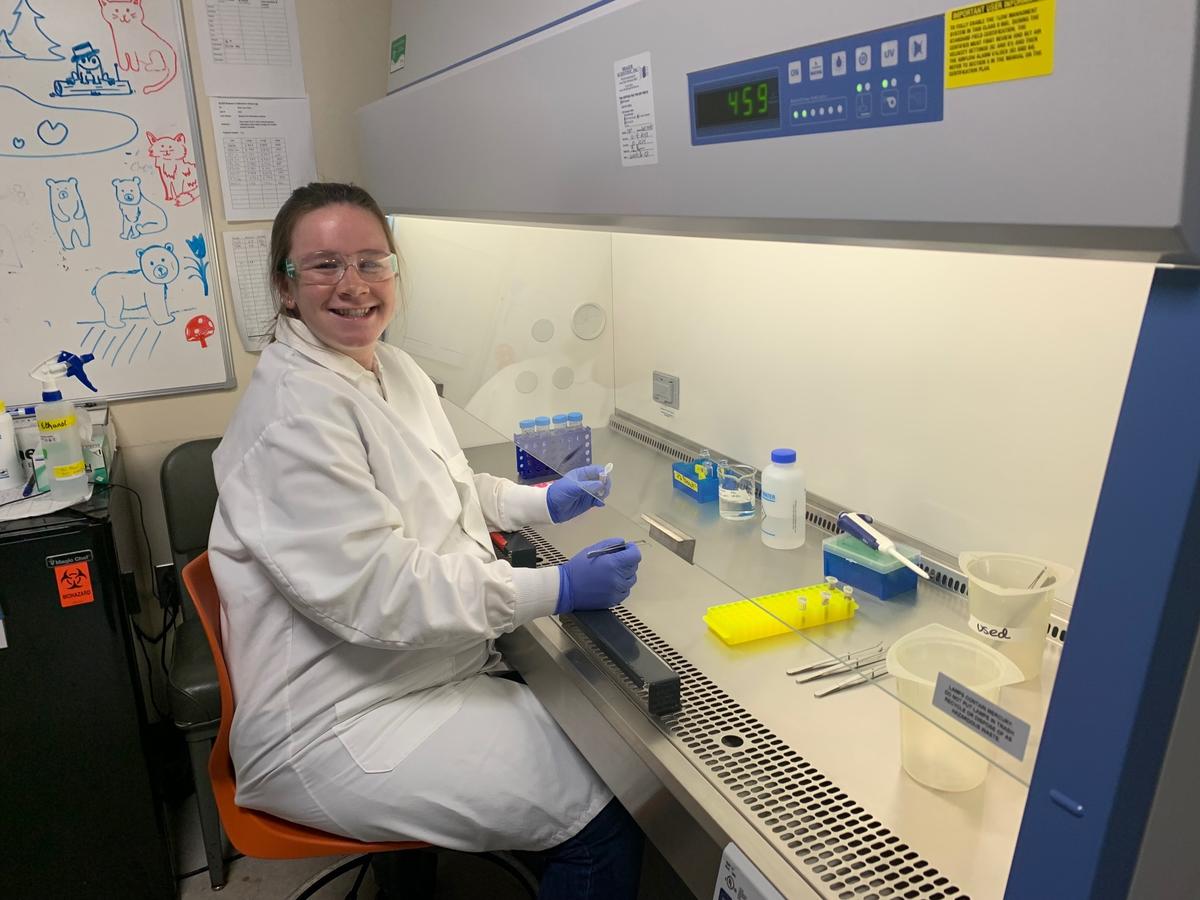The Covid-19 pandemic has lingering impacts on lives – more remote working, greater appreciation of personal connections, or ongoing health concerns. But for one “lucky” microbiologist, it launched a satisfying career.
Graduating with a bachelor’s degree from UMD at the height of the pandemic in 2020 with a double major in chemistry and biochemistry, Katie Edblad stepped right into wastewater epidemiology at the U’s Medical School. She was part of a team monitoring the levels of SARS-CoV-2 in wastewater across Minnesota and on University campuses.
“But when that project moved to the Twin Cities campus, I wasn’t willing to leave Duluth,” said Edblad. “So I got this job at NRRI in the Water Research Group, and the water samples are far less stinky!”
Her work now involves the emerging science of environmental DNA, referred to as “eDNA”, to analyze the genetic materials – mucus, feces or tissue particles – shed by organisms in lakes and streams. Her team is developing ways to take environmental water and soil samples in a way that maximizes their detection rate with the greatest accuracy. Once they extract the eDNA, they use a polymerase chain reaction technique to quantify how much of each target species’ fingerprinting gene is present in the water sample.
She’s also involved in monitoring E. coli levels in water samples collected in local streams and recreational beaches to inform the public about microbiological water quality like fecal contamination issues.
Intentional Scientist
As a kid, Edblad had a love of outdoor wild spaces. Today, she is rewarded daily by her work studying, understanding and protecting the environment.
“I have known since childhood exactly what I wanted to do when I grew up,” she said. “And I’m especially lucky to have been given every opportunity to chase those dreams.”
She especially appreciates the variety of her responsibilities as a researcher, lab manager and safety officer.
“It keeps me on my toes, wondering what the next challenge might be, and I’m certainly never bored,” said Edblad. “I have genuine excitement about the work I get to do.”
Community Science
Now she’s helping to engage volunteers to help collect water samples to look for eDNA from aquatic invasive species. Most people living in water-rich Minnesota are keenly aware of the impacts of invasive species that, once introduced to a water body, can outcompete native species for resources, disrupting entire food webs and ecosystems.

“The quicker, cheaper and easier we can catch a new invasion, the faster we can implement strategies to intervene and reduce spread, or potentially prevent them from establishing large populations,” Edblad explained.
She hopes that waterfront property owners or lake associations or even school children will be interested in becoming citizen scientists in support of this research.
NRRI Expertise
Edblad thinks NRRI’s broad variety of disciplines, united by the same mission, makes her job easier. She recalls when her small team of microbiologists found many “large and icky bugs” in their sediment sample. None of them knew what they were.
“But there’s an invertebrate lab right down the hall,” said Edblad. “So we quickly learned from the entomologists that they were mayfly nymphs from the largest mayfly species we have in Minnesota. We are lucky to work in a space that facilitates and encourages knowledge sharing.”
She’s also stepping away from microbiology to learn new skills in electrochemical analysis for the large Great Lakes Sediment Surveillance Program, a study of legacy and emerging contaminants, funded by the Environmental Protection Agency. This is a collaborative effort across multiple organizations outside of the University, but also across many NRRI disciplines.
“It’s been a great opportunity, and I’m enjoying being part of such a cool project,” said Edblad.
She also gives a grateful shout out to NRRI Safety/Quality Team who ensure the researchers are keeping safety first while producing the best work possible.
“Their knowledge and guidance, with frequent safety check-ins and audits, is by far the most important work taking place in our buildings,” said Edblad. “Our team members are our most valuable assets.”
Off Hours
Enjoying “wild spaces” didn’t stop when Edblad grew up. Weekends are spent with her husband and dog exploring local parks and gardening. They also love to travel and she’s ticked off visits to 49 states, with just Hawaii to go.
“But Hawaii might need to wait for a few years,” she added. “We’re welcoming our first child – it’s a boy! – this November. I’m looking forward to sharing my love for all things ‘science-y’ with our child.”
